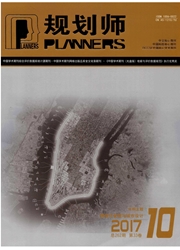

 中文摘要:
中文摘要:
近些年受到各种因素的影响,村落公共空间不断发生变化。该文以广州小洲村为例研究文化创意产业介入后对其村落祠堂公共空间的影响,从祠堂公共空间的公共属性和空间属性切入分析。文化创意产业介入后不仅使祠堂公共属性中的可达性、经管者以及利益发生了改变,也影响了祠堂公共空间的空间属性。研究得出结论,文化创意产业介入后提高了祠堂公共空间的可达性和空间属性的利用,增加了村落的经济利益收入,但经管者和空间权利的私人化却在一定程度上削弱了公共属性。研究产业与公共空间的关系,为保护和利用村落公共空间开辟了新的方法,有利于以后更好地引导村落公共空闻的发展。
 英文摘要:
英文摘要:
By the influence of various factors in recent years, the village public space is constantly changing. In this paper we take Xiaozhou Village of Guangzhou as an example, to study the influence of the culture creative industry to the ancestral hall in village public space, and to analyze the village public space with public attributes and spatial attributes. Not only the access, agency and interest of the public properties of the ancestral hall have been changed, but also the spatial properties of the ancestral hall have been affected. As a conclusion, the culture creative industry improves the access and the spatial properties use of the ancestral hall, and increases economic interests of the village income, but the privatization of agency and spatial right weakened the public properties to a certain extent. Researching the relationship between industry and public space, we open up a new approach to how to protect and use the village public space, and contribute to better guide the development of the villages public space in the future.
 同期刊论文项目
同期刊论文项目
 同项目期刊论文
同项目期刊论文
 期刊信息
期刊信息
